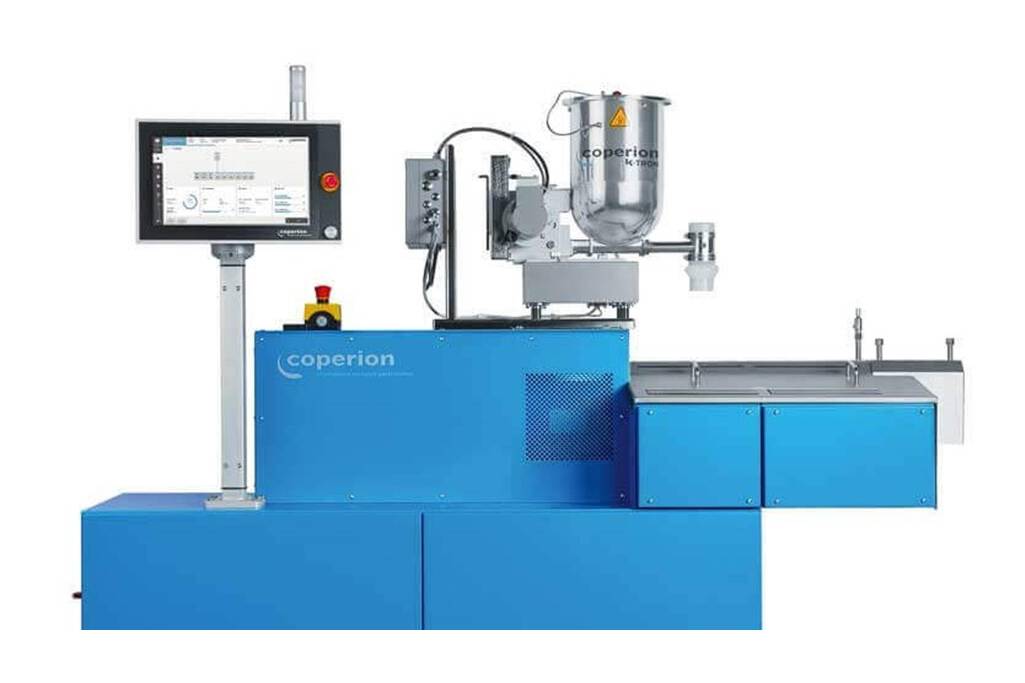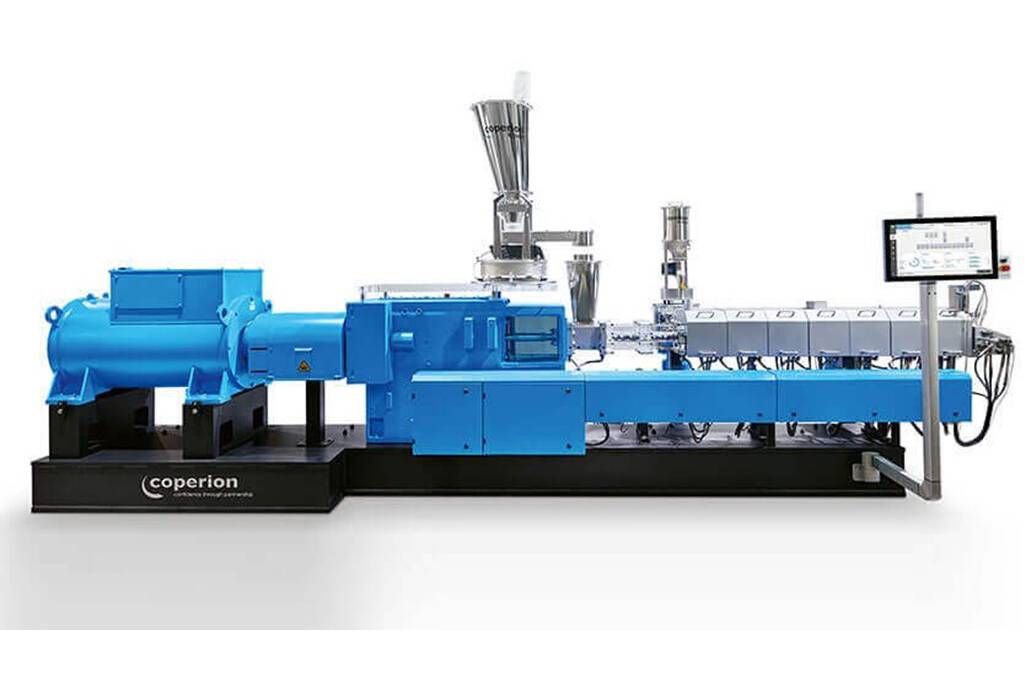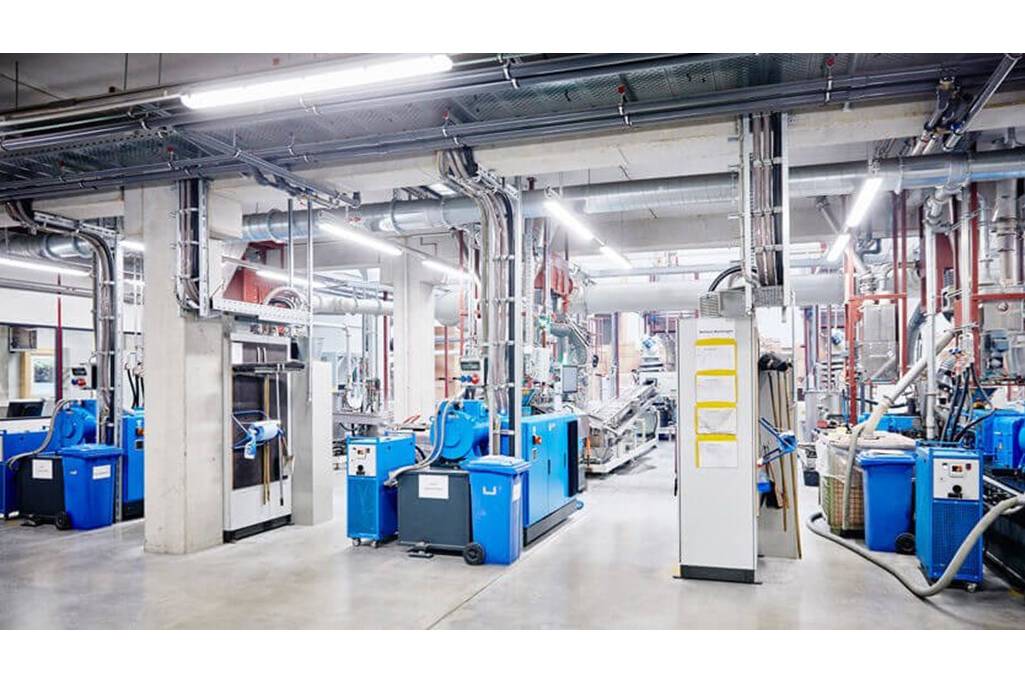Coperion Recycling Innovation Center: State-Of-The-Art Test Lab
Construction of a new state-of-the-art test laboratory for plastics recycling applications. Forward-looking investment for more sustainability in plastics recycling.
Coperion GmbH has initiated the construction of a state-of-the-art recycling test lab at its Niederbiegen/Weingarten, Germany, production facility.
The new Coperion Recycling Innovation Center will be built in the immediate vicinity of Coperion’s existing Test Center for Bulk Solids Handling. Driven by rising demands worldwide for a circular plastics economy, a clear trend has taken shape over the last years toward more recycling. Coperion is meeting this trend, not only with its equipment and processes designed for recycling applications, but also with its new Recycling Innovation Center.
At the facility, customers will be able to develop and test new, sustainable products and recycling processes together with Coperion’s experts. All essential recycling process stages will be covered within the facility including materials conveying, feeding, extrusion, pelletizing, and materials postprocessing. In addition, Coperion will conduct its own research activities on plastics recycling in this new Recycling Innovation Center.
With this new addition, the company will expand its test lab capacities, throughout Germany alone, up to 5,000 m² (53,819 ft²), making it evident that Coperion’s investment for innovation and underscoring its research and development activities, particularly with regard to issues of sustainability is paramount.
Markus Parzer, President of the Polymer Division and Managing Director of Coperion GmbH, said: “Worldwide demand for state-of-the-art, efficient plastics recycling solutions will continue to grow in the years to come because of the constantly increasing demands of environmental legislation, such as that within the framework of the European Green New Deal, and due to changing consumer behavior and environmental consciousness. In deciding to create this new Recycling Innovation Center, we have set clear priorities to be an active partner with our customers by offering our advanced technologies and established expertise, as we work with them along the path toward greater sustainability and a functioning circular economy.”
Added Bernd Neumann, Coperion Weingarten and Niederbiegen Site Manager: “We are confident that, with our new Recycling Innovation Center, equipped with the most modern technology for high-quality and innovative recycling processes, it will be an attractive added value for our customers in the plastics industry. At the same time, the new facility will allow the addition of interesting, long-term career opportunities for those in the region.”
Recycling Plays a Central Role in Sustainability
In the face of changing end-user consumer habits and environmental legislation growing ever stricter worldwide, the plastics industry recognized long ago that more sustainable production is a must.
Recycling plays a central role in achieving this goal. Many plastics treatment and processing operations around the world are addressing the question of how recycling can be implemented, practically and at an industrial scale. To answer this question specific to each customer, concrete approaches to solutions for every recycling process stage will be tested and developed, together with customers from all over the world, in the new Coperion Recycling Innovation Center. These solutions can then be efficiently implemented in production from a single source.
Marina Matta, Team Leader of Process Technology Engineering Plastics at Coperion, had this to say about the new Recycling Innovation Center: “With this state-of-the-art test lab, we are offering our customers a top-tier solution for developing their processes and products. Along with processing and product solutions for the mechanical recycling of industrial and household waste, together with our customers we can also develop and test innovative solutions for every other current recycling process.
Moreover, the Recycling Innovation Center offers Coperion ideal conditions to drive our research and development activities forward for more efficiency and expanded feasibility in plastics recycling.”


